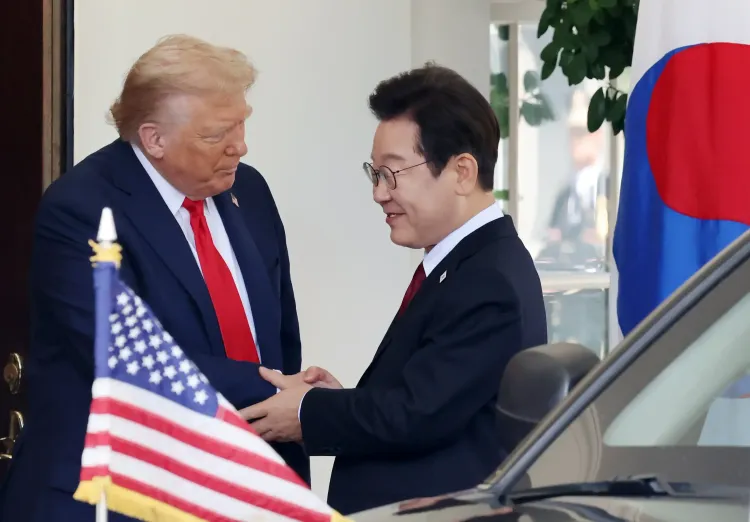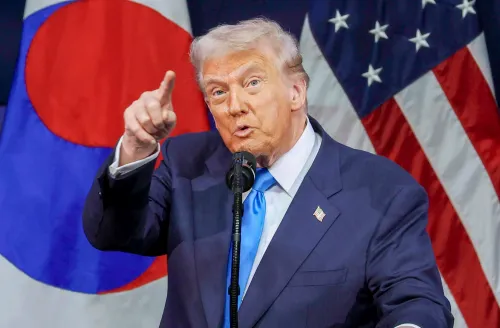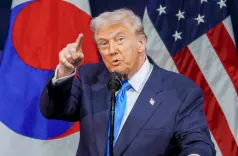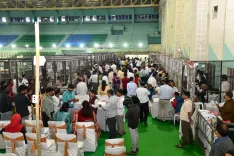Is the US Really Lowering Tariffs on Japanese Automakers?

Synopsis
Key Takeaways
- The U.S. is lowering tariffs on Japanese automobiles to 15 percent.
- This new rate will take effect starting Tuesday.
- South Korean vehicles are still subject to a 25 percent tariff.
- Negotiations are ongoing regarding the specifics of the trade agreements.
- The U.S. is a major export market for South Korean automobiles.
Washington, Sep 16 (NationPress) The administration of U.S. President Donald Trump is set to implement a new tariff of 15 percent on Japanese automobiles starting this week, in accordance with a recent bilateral trade agreement. The International Trade Administration, part of the Commerce Department, announced through a notice in the Federal Register that the new tariff rate will take effect on Tuesday. This follows Trump's signing of an executive order earlier this month to formally enact the deal with Japan, as reported by Yonhap news agency.
As stipulated by the agreement, the United States will reduce tariffs on Japanese cars and parts from the current 27.5 percent to 15 percent. This rate includes the existing 2.5 percent tariff alongside the sector-specific global duty of 25 percent.
In contrast, South Korean vehicles are currently subjected to a 25 percent sectoral tariff, implemented by the Trump administration under Section 232 of the Trade Expansion Act of 1962. This law permits the president to modify imports if they pose a threat to national security.
The U.S. has also promised to reduce tariffs on South Korean automobiles to 15 percent as part of a bilateral trade agreement established in July. However, the timeline for the implementation of this agreement remains uncertain due to ongoing negotiations regarding its specific terms.
Upon his arrival in the U.S. on Monday, South Korea's Trade Minister Yeo Han-koo emphasized Seoul's commitment to ensuring the swift implementation of the auto tariff reduction for Korean vehicles. He stated, "As we are currently in negotiations, we will maintain a level-headed approach," as he prepares to meet with U.S. Trade Representative Jamieson Greer and other officials for follow-up discussions on the July trade agreement.
The United States serves as a crucial export market for South Korean automobiles. Last year, exports to the U.S. accounted for $34.7 billion, or 49.1 percent of South Korea's total car exports, with Hyundai Motor Group and GM Korea exporting approximately 970,000 and 410,000 units to the U.S., respectively.









